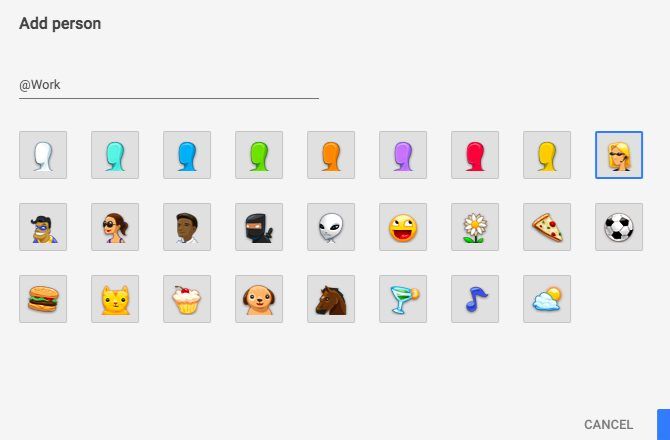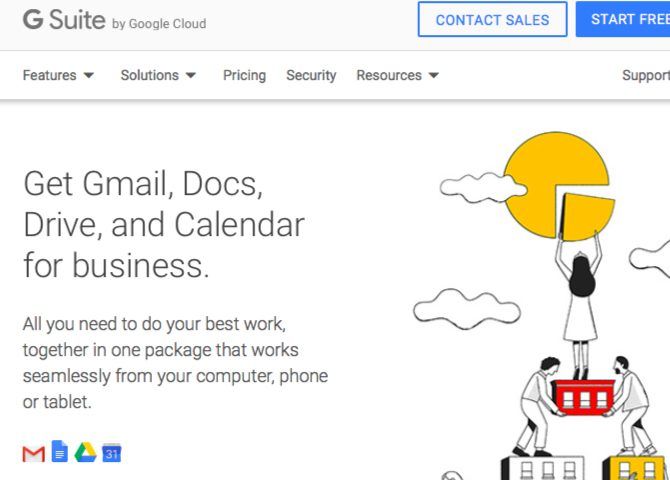When you work online as a freelancer, the line between your personal self and professional self tends to blur.
The risk of identity mix-ups and misplaced data is a constant, and so is the temptation to play hooky from work. One email sent to the wrong address or one ill-advised post on your Facebook timeline could get you fired.
To reduce the potential for such disaster, it’s a good idea to disconnect your digital personal life from your digital work life. Let’s show you five basic ways to make that happen.
1. Separate Online Identities
![]()
Start with your email. Get a custom domain name and an email address to go with it. Don’t use this address to sign up for services that aren’t related to your work. Use your personal email address instead.
You can still read email sent to both addresses in the same place with a desktop email client or a webmail service that can handle multiple accounts.
Now for the most important bit: set up different profile pictures for your work and personal email accounts. For best results, use Gravatar to assign an avatar for either email account. Once you do this, whenever you use one of your email addresses online, the corresponding unique profile picture shows up with it.
What’s the benefit of doing this?
You’re always aware if you’re using the appropriate account for whatever online action you’re about to take. This helps when you’re sending a strongly worded email, leaving a comment on a website, or sharing sensitive files.
You might also want to have separate social media accounts for work and personal use. After all, professional networking on social media has certain dos and don’ts that may not apply to the personal sphere.
2. Separate Devices
If you limit your work-related tasks and personal ones to distinct devices, you don’t have to worry about any mix-ups of data or identity. You can turn one device into a productivity hub and the second one into an entertainment and admin zone.
You don’t have to go out and buy a new gadget to make this work. Try using your desktop or laptop only for work and your phone only for personal tasks and media consumption. A Chromebook also makes the perfect device for personal use.
It can get tedious to switch between the two devices, but that’s the idea. It’ll ensure that when you work, you work, and when you play, you play.
If procrastination is your nemesis, or workaholism is, having a dedicated device for work and a shutdown routine can help you fight it.
3. Separate User Accounts on Desktop

If you use the same device for both work and personal activities, it’s ideal to create separate user accounts or profiles for them.
You can use your personal account for day-to-day admin, blogging, watching movies and TV shows, and catching up on newsletters. You can also use it for casual web browsing and as a testing ground for apps.
But when you log into your work account, it’ll be like you have dressed up for work and entered “the zone”. By the way, actually dressing up is one way to be more productive when working from home.
4. Separate Browsers or Browser Profiles

Don’t want to switch back and forth between user accounts? Why not switch between browsers instead? You can use a combination of, say, Chrome and Firefox, or Safari and Opera, to split your digital activity.
With this approach, you can keep your work browser lean. All the resource-intense activity in your personal browser will stay limited to it.
You can play around with all kinds of interesting extensions in the personal browser without slowing down your work browser. You also don’t have to worry about mixing up bookmarks or leaving behind your search history in your work account.
If Chrome or Firefox is one of your primary browsers, you can set up different profiles for work and play instead of using separate browsers.
While you can have multiple user profiles in Opera also, the method to set them up is slightly roundabout. You’ll find it in this thread in the Opera forums.
It’s a pity that Safari doesn’t support multiple user profiles. You can’t even add them with an extension due to the security feature that’s System Integrity Protection (SIP). But don’t worry, you can quickly switch between user accounts from your Mac’s menu bar.
5. Separate Apps and Tools

Have you decided to go with a single user account after all? You can still keep your work and personal activities sorted with distinct apps, brands, app suites and ecosystems.
For example, if you use OneNote for work, you can save non-work stuff to Evernote. Or if you use iCloud apps or Microsoft apps for your personal data, you can use Google apps for work.
Setting things up this way might seem like a lot of work initially, but once you have everything in place, your workflows are more sorted. And thanks to import/export and cloud backup features in apps, moving your data is not as difficult as it used to be.
Dividing activities with digital and analog tools can also work. For example, you can use Trello, Google Calendar, and Evernote for work. And for personal use, you can go with an actual Kanban board, a paper planner, and a paper Bullet journal. You don’t have to go to extremes like swapping out personal emails for handwritten letters.
This last approach is working out pretty well for me. By using my laptop mainly for work, I have been able to reduce screen time to a considerable extent.
Dress Up Your Online Self for Work
In a traditional work setup, your work life is both physically and digitally removed from your personal one. As a freelancer, you can get the same physical space by setting up a home office. But you need a digital barrier too, and the onus to create it is once again on you.
If you protect your online reputation as a precautionary measure, in all probability, you won’t have to do it as a damage control tactic.
Image Credit: Olivier26/Depositphotos
from MakeUseOf https://ift.tt/2HK4mG7
via IFTTT
No comments:
Post a Comment